Planning an African safari can be an exhilarating adventure that allows you to immerse yourself in Africa’s breathtaking wildlife and natural beauty. Whether you dream of spotting the Big Five, witnessing the great migration, or exploring the diverse landscapes of countries like South Africa, Kenya, Tanzania, or Botswana, a safari in Africa offers a truly unforgettable experience.
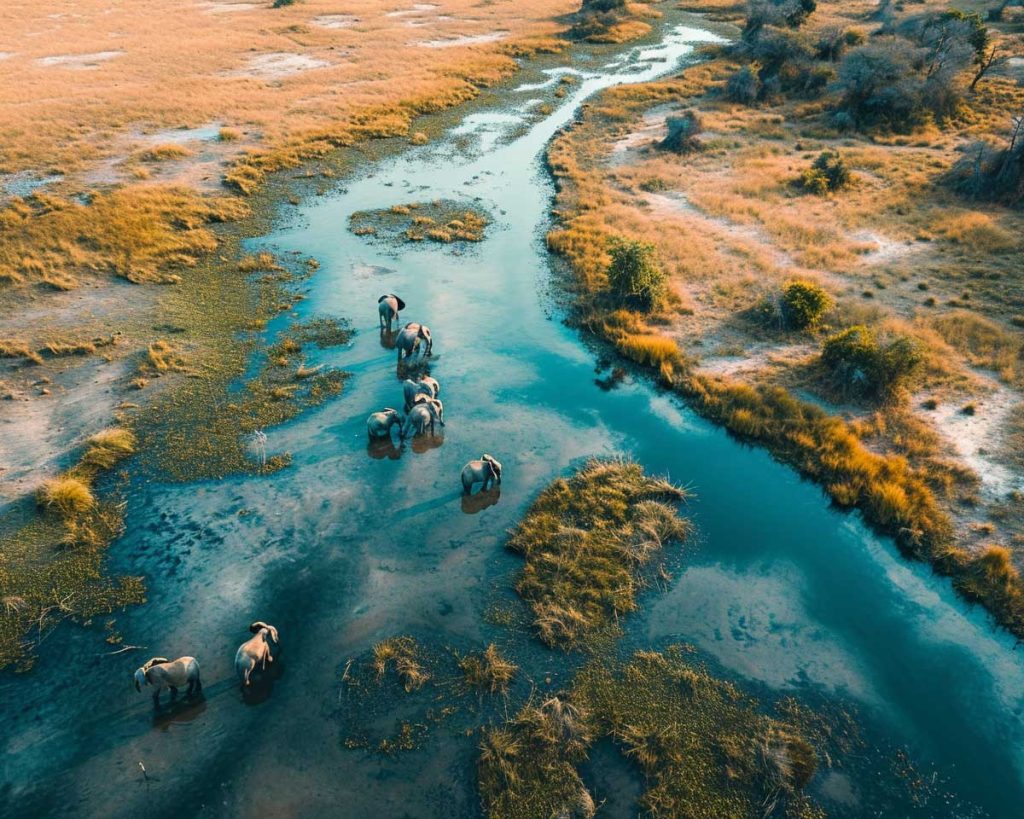
This comprehensive guide will provide you with everything you need to know to plan the best African safari. From the best time to go on a safari to choosing the correct destinations, understanding the different types of safaris available, and essential tips for a safe and memorable journey, we’ve got you covered.
Key Takeaways:
- Choose the best time to go on a safari to maximise wildlife sightings and enjoy favourable weather conditions.
- Explore popular safari destinations like Kruger National Park in South Africa, the Serengeti National Park in Tanzania, and the Masai Mara in Kenya.
- Consider different types of safaris, including luxury lodges, classic tented camps, walking safaris, and gorilla trekking in Uganda.
- Plan your safari budget, research and choose the right tour operator, and pack essential gear and clothing for the adventure.
- Ensure your safety on safari by following safari safety tips and taking necessary health precautions while travelling in Africa.
When is the Best Time to Go on an African Safari?
The time of year of your African safari can greatly impact your chance of wildlife viewing and overall enjoyment. Africa experiences different safari seasons, each with unique highlights and challenges. In this section, we will explore the different safari seasons, the pros and cons of going on safari during the peak season, the wildlife viewing and climate in East Africa, understanding wildlife migration patterns, and essential factors to consider when deciding on the timing of your safari. Comprehending the best time to go on an African safari can maximise your chances of witnessing incredible wildlife sightings and creating unforgettable memories.
Comparing the Safari Seasons
Understanding the different safari seasons is crucial when planning your African safari. Africa’s seasons can generally be categorised into three main categories: the dry season, the wet season, and the shoulder season. Each season offers unique advantages and disadvantages regarding wildlife sightings, weather conditions, and overall safari experiences. It’s important to compare these seasons and consider your preferences and priorities to choose the best time to go on safari.
Pros and Cons of Going On Safari During Peak Season
Peak season in Africa is when safari destinations are at their busiest, with more tourists flocking to experience the wildlife and scenery. While peak season offers the opportunity to witness incredible wildlife sightings, it also comes with certain drawbacks, such as higher prices, crowded game drives, and limited availability of accommodations. It’s essential to weigh the pros and cons before deciding if peak season is the best time to go on safari.
Wildlife Viewing and Climate in East Africa
East Africa, including countries like Kenya and Tanzania, is known for its diverse wildlife and stunning natural beauty. The region offers exceptional opportunities for wildlife viewing, with the famous Great Migration being one of the highlights. Understanding the climate and wildlife patterns in East Africa will help you choose the optimal time to visit and increase your chances of witnessing remarkable wildlife spectacles.
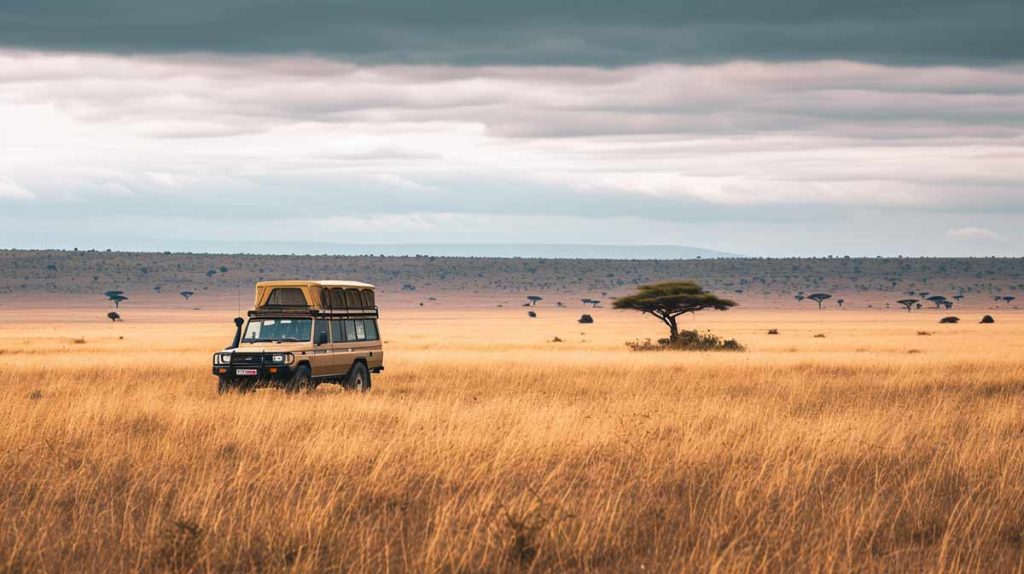
Understanding Wildlife Migration Patterns
Wildlife migration is a fascinating phenomenon that occurs in various parts of Africa. Animals such as wildebeest, zebras, and gazelles embark on epic journeys searching for food and water. Understanding these migration patterns can significantly enhance your safari experience, as you can plan your trip to witness the thrilling river crossings or predator-prey interactions that unfold during these migrations.
Safari Timing: What You Need to Consider
Several factors must be considered when deciding on the timing of your African safari. These include weather conditions, the availability of wildlife, the accessibility of specific areas, and personal preferences. Researching and evaluating these factors is essential to determine the best time that aligns with your expectations and interests. By carefully considering these aspects, you can ensure a more fulfilling and rewarding safari experience.
Exploring the Best Safari Destinations in Africa
Africa is home to some of the world’s most iconic safari destinations, offering a unique blend of wildlife, landscapes, and cultural experiences. Whether you’re seeking the thrill of spotting the Big Five or exploring the vast wilderness of Africa, these safari destinations promise unforgettable encounters with nature’s wonders.
South Africa: Kruger National Park and Beyond
South Africa boasts one of the most renowned safari destinations, Kruger National Park. It has over 2 million hectares and is home to diverse wildlife species, including elephants, lions, rhinos, and leopards. Beyond Kruger, you can captivate areas and explore other countries, such as Cape Town and the surrounding wine regions.
Tanzania’s Serengeti National Park and Ngorongoro Crater
Tanzania offers two exceptional safari destinations: the Serengeti National Park and the Ngorongoro Crater. The Serengeti is renowned for its annual wildebeest migration, during which millions of wildebeest, zebras, and other ungulates move in search of fresh grazing. The Ngorongoro Crater, a UNESCO World Heritage Site, provides a unique ecosystem and boasts incredible wildlife diversity.
Kenya: Masai Mara and Other Game Reserves
The Masai Mara National Reserve is a must-visit destination for safari enthusiasts in Kenya. Known for its abundant wildlife, including the Big Five, the Masai Mara offers thrilling game drives and the opportunity to witness the iconic Great Wildebeest Migration. Kenya also offers other remarkable game reserves like Amboseli National Park and Samburu National Reserve.
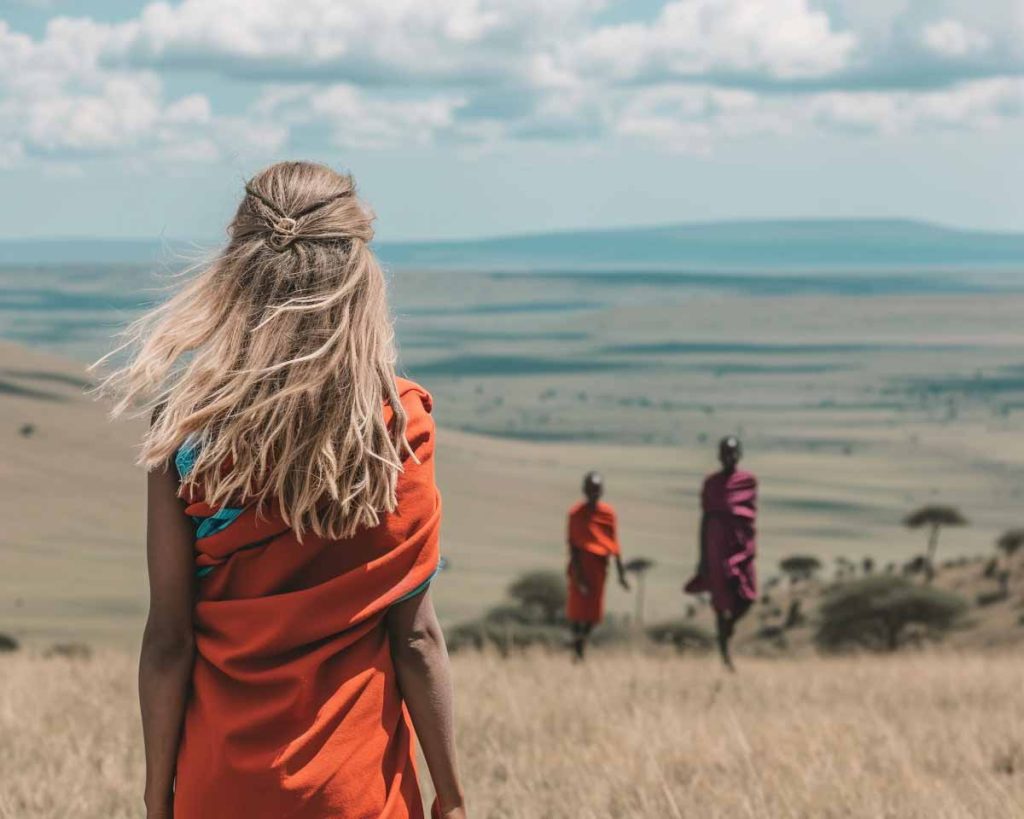
Botswana’s Okavango Delta and Other Wildlife Havens
Botswana’s Okavango Delta is a unique and pristine wilderness, teeming with an astonishing array of wildlife. This delta oasis offers various safari experiences, from traditional game drives to mokoro (dugout canoe) safaris. Botswana also boasts the Chobe National Park, home to one of Africa’s largest populations of elephants.
Off the Beaten Path: Uganda, Zambia, and Namibia
For those seeking off-the-beaten-path safari adventures, Uganda, Zambia, and Namibia offer captivating wildlife encounters. Uganda is renowned for its gorilla trekking experiences in Bwindi Impenetrable National Park, while Zambia’s South Luangwa National Park provides excellent opportunities for walking safaris. Namibia showcases the unique landscapes of the Namib Desert and Etosha National Park’s diverse wildlife.
Exploring these best safari destinations in Africa will undoubtedly leave you in awe of the continent’s natural wonders and provide a truly immersive safari experience.
Understanding the Different Types of Safaris
African safaris offer a variety of experiences and accommodation options to suit every traveller’s preferences. Whether you are looking for a luxurious getaway or a more traditional camping experience, there is a safari style that will cater to your needs. In this section, we will explore the different types of safaris available, including luxury safari lodges versus classic tented camps, exhilarating game drives, family-friendly safaris, walking safaris and gorilla trekking in Uganda, and unique safari experiences like night drives and boat safaris.
Luxury Safari Lodges vs. Classic Tented Camps
Regarding accommodation on your safari, you can choose between luxury safari lodges and classic tented camps. Luxury lodges offer spacious rooms, private decks with stunning views, and top-notch amenities, providing a lavish and comfortable experience in the African wilderness. On the other hand, classic tented camps offer a more authentic and immersive safari experience, with canvas tents that blend seamlessly into the natural surroundings. Each option has its charm and unique benefits, so consider your preferences when choosing where to stay.
Going on a Safari Game Drive: What to Expect
A safari game drive is one of the highlights of any African safari. It offers the opportunity to get up close and personal with Africa’s incredible wildlife. During a game drive, you will venture out in a specially designed safari vehicle with a knowledgeable guide who will navigate through the wilderness in search of wildlife sightings. You can expect to encounter various animals, from the iconic Big Five to different bird species. Be prepared for thrilling moments and breathtaking sightings as you explore the vast landscapes of Africa.
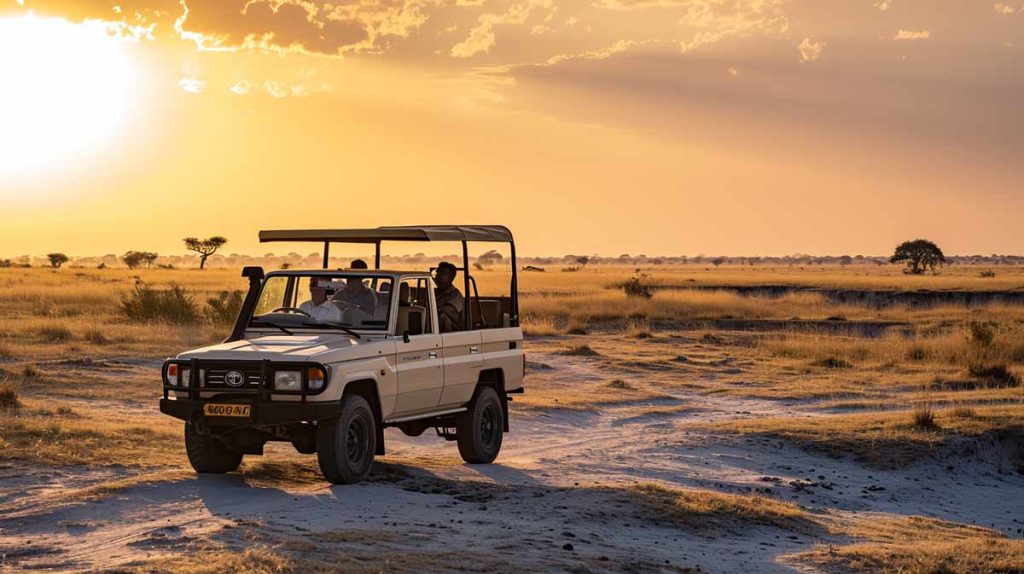
Family-Friendly Safaris: How to Plan
Planning a family safari requires special consideration to ensure that children and adults have a memorable and enjoyable experience. When choosing a family-friendly safari, look for lodges or camps that offer child-friendly activities, such as guided nature walks, junior ranger programs, or cultural interactions. It’s also important to consider the age restrictions and safety measures. With careful planning and suitable accommodations, a family safari can be a fantastic opportunity to create lifelong memories and instil a love for nature in your children.
Walking Safaris and Gorilla Trekking in Uganda
For adventurous souls, walking safaris and gorilla trekking in Uganda provide an exhilarating way to explore the African wilderness. Walking safaris offer a more immersive experience, allowing you to connect with nature on a deeper level as you trace the footsteps of wildlife through the bush. Gorilla trekking, on the other hand, takes you into the misty mountains of Uganda to encounter endangered mountain gorillas in their natural habitat. These unique experiences provide a thrilling combination of adrenaline and awe, offering a chance to witness Africa’s incredible biodiversity up close.
Unique Safari Experiences: Night Drives, Boat Safaris, and More
In addition to traditional game drives, various unique safari experiences can enhance your African adventure. Night drives offer a chance to spot nocturnal animals and witness the magical transformation of the African landscape under the cover of darkness. Boat safaris allow you to explore rivers and waterways, providing a different perspective of wildlife and stunning scenery. Other unique experiences include hot air balloon safaris, horseback safaris, and cultural encounters with local communities. These memorable experiences add extra excitement and diversity to your safari and create memories that will last a lifetime.
Planning Your First African Safari: Complete Guide
Planning your first African safari requires careful consideration and preparation to ensure a smooth and enjoyable experience. This section will provide a complete guide to preparing your first African safari, including budgeting for your safari and considering the costs involved, choosing the right safari tour operator to meet your needs and preferences, packing the essential gear and clothing for your safari adventure, understanding safari safety tips to stay safe in the wilderness, and primary health precautions for travelling in Africa. Following this complete guide, you will be well-equipped to plan and confidently enjoy your first African safari.
Safari Budgeting: Costs to Consider
When planning your first African safari, it’s essential to consider the costs involved. Here are some key factors to weigh when budgeting for your safari:
- Accommodation: Research and compare the costs of different safari lodges and camps to find one that fits your budget.
- Transportation: Consider the cost of flights, transfers, and additional transportation during your safari.
- Activities: Consider the costs of game drives, guided walks, boat safaris, and any other activities you plan to participate in.
- Park fees: Check the entrance and conservation fees for the national parks or reserves you will visit.
- Meals and drinks: Factor in the cost of meals and beverages, as some safaris may offer all-inclusive packages while others may require you to pay for meals separately.
- Tipping: Plan for gratuities to guides, drivers, and staff at lodges or camps.
Choosing a Safari Tour Operator
Choosing the right safari tour operator ensures a well-organized and memorable experience. Here are some factors to consider when selecting a safari tour operator:
- Experience and reputation: Research the tour operator’s expertise and reputation by reading reviews and testimonials from previous travellers.
- Destinations and itineraries: Check if the tour operator offers safaris to your desired destinations and if their itineraries align with your preferences.
- Accommodation options: Ensure that the tour operator offers a range of accommodation options to suit your budget and comfort level.
- Guides and staff: Inquire about the qualifications and expertise of the guides and staff who will accompany you during your safari.
- Customer support: Look for a tour operator that provides excellent customer support before, during, and after your safari.
Packing for a Safari: Essential Gear and Clothing
When packing for your first African safari, it’s essential to bring the right gear and clothing to ensure your comfort and safety. Here are some critical items to include in your safari packing list:
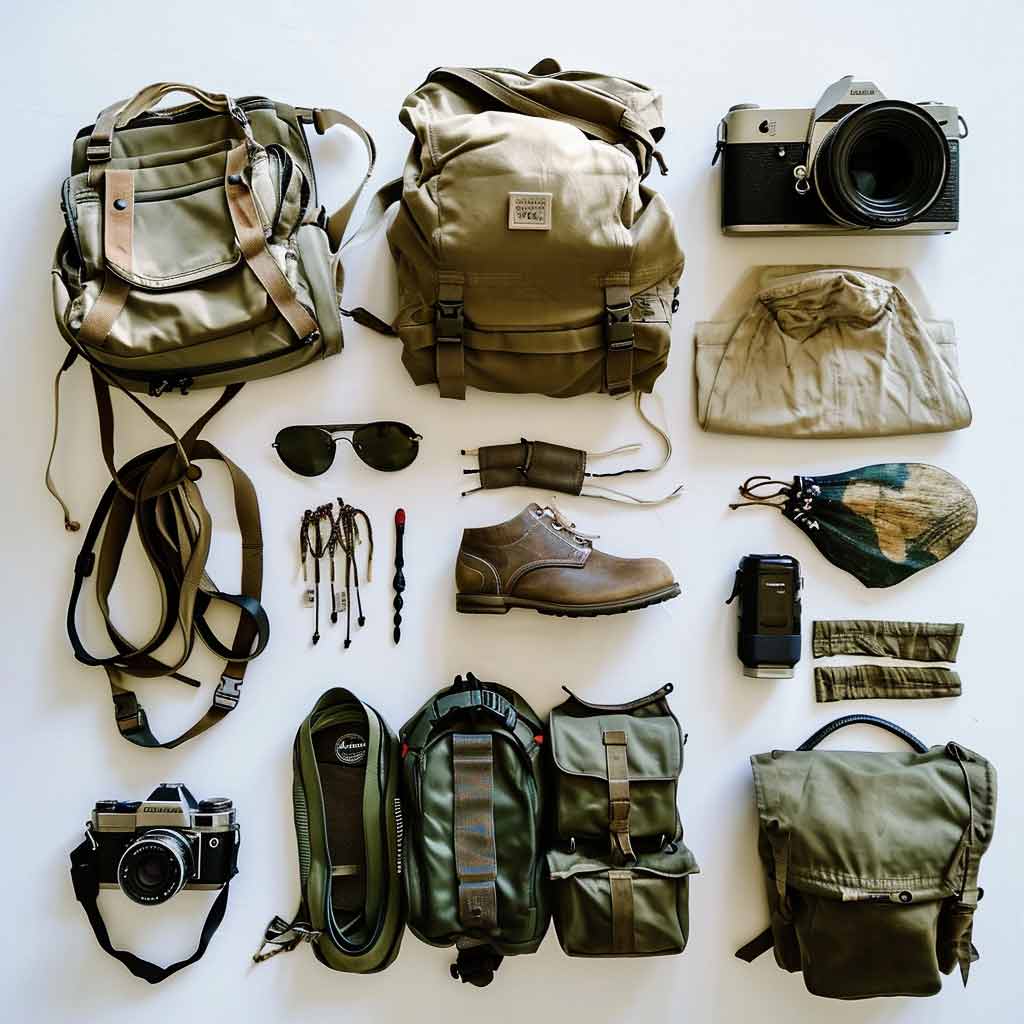
- Appropriate clothing: Pack lightweight, breathable clothing in neutral colours, long sleeves, and pants to protect against the sun and insects.
- Good quality walking shoes or boots: Choose comfortable closed-toe shoes for walking on uneven terrain.
- Binoculars and camera: Bring binoculars to enhance your wildlife viewing experience and a camera to capture the incredible moments.
- Sunscreen and insect repellent: Protect your skin from the sun and insects with high-SPF sunscreen and effective insect repellent.
- Hat and sunglasses: Shield your face and eyes from the sun with a wide-brimmed hat and sunglasses.
- Medications and first-aid kit: Carry any necessary medications and a basic kit for minor injuries or illnesses.
Safari Safety Tips: What You Need to Know
Ensuring your safety during your first African safari is of utmost importance. Here are some safari safety tips to keep in mind:
- Follow your guide’s instructions at all times and stay within designated areas.
- Please don’t approach or try to touch any wildlife. Maintain a safe distance and respect their space.
- Avoid wearing bright colours or strong fragrances that attract insects or scare away wildlife.
- You can stay hydrated by drinking plenty of water and avoid swimming in rivers or lakes unless told.
- Listen to safety briefings and guidelines your safari tour operator or lodge provides.
Health Precautions for Traveling in Africa
Before embarking on your first African safari, taking necessary health precautions is essential to ensure a safe and healthy journey. Here are some key health considerations:
- You can visit a travel clinic or healthcare provider to ask about your destination’s recommended vaccinations and medications.
- Please ensure you have comprehensive travel insurance covering medical expenses and evacuation in case of emergencies.
- Use insect repellent and wear long sleeves and pants to prevent mosquito bites.
- Drink bottled or purified water and avoid consuming raw or undercooked food.
- Keep a basic first-aid kit with essential supplies for minor injuries or illnesses.
African Big Five: Tracking Leopard, Lion, Buffalo, Elephant, and Rhinoceros
Prepare for an exhilarating encounter with the African Big Five, the leopard, lion, buffalo, elephant, and rhinoceros. These majestic creatures are the pinnacle of any African safari experience, and tracking them in their natural habitat is a thrilling adventure that will leave you in awe.
The Big Five: An Introduction
The African Big Five are renowned for their strength, beauty, and unique characteristics—the elusive leopard prowls through the savannah with its stunning spots. The mighty lion, king of the jungle, roams proudly in search of prey. The formidable buffalo, with its imposing horns, commands respect. With its magnificent tusks, the gentle giant elephant gracefully navigates the wilderness. With its horned majesty, the iconic rhinoceros symbolises Africa’s rich biodiversity.
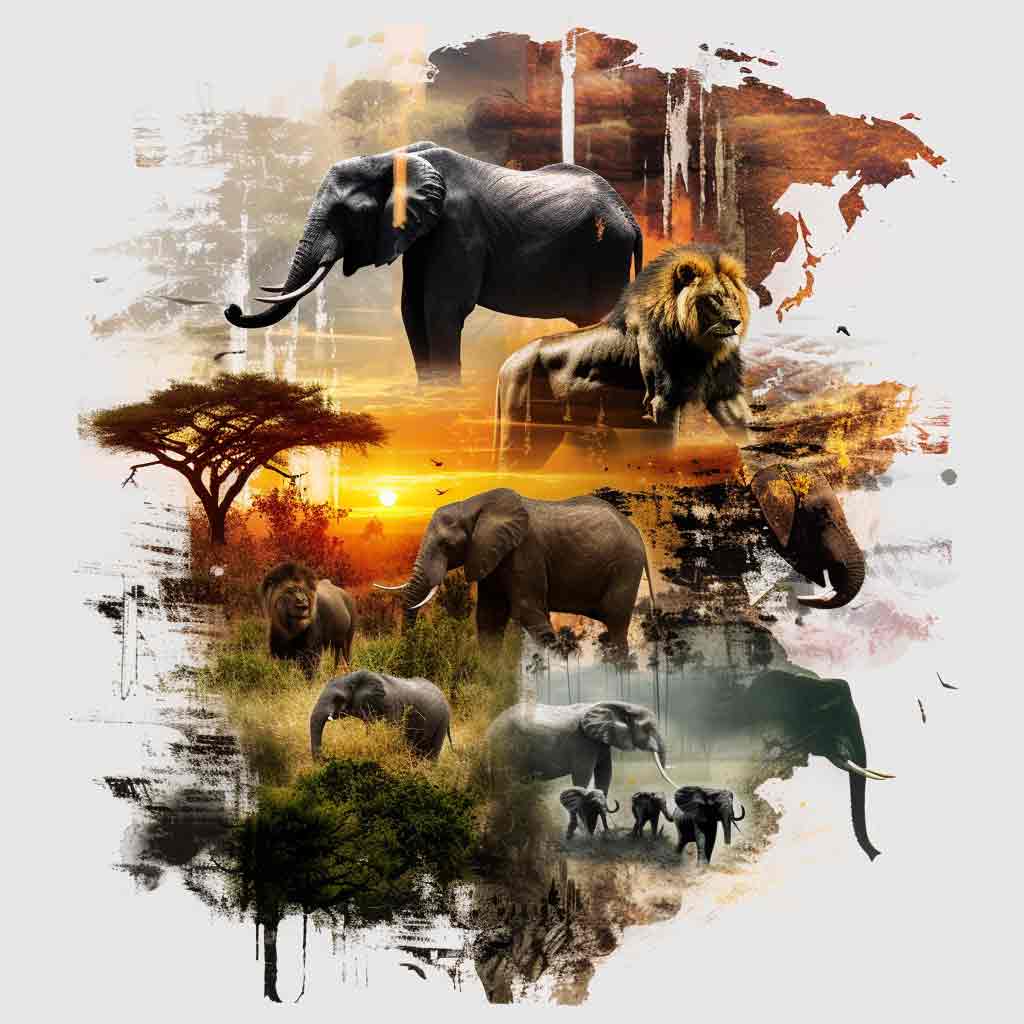
Best Places to Spot The Big Five in Africa
If you’re eager to witness the African Big Five up close, there are several prime locations across the continent for exceptional wildlife sightings. The vast savannah of Kenya’s Masai Mara Reserve and Tanzania’s Serengeti National Park offer unparalleled opportunities to see these magnificent creatures in their natural habitat. South Africa’s Kruger National Park, Botswana’s Chobe National Park, and Zimbabwe’s Hwange National Park are renowned for their abundance of Big Five encounters.
Tips for Capturing Great Wildlife Photos
Preserve your memories of the African Big Five by capturing stunning wildlife photos. To catch these extraordinary animals in all their glory, consider using a telephoto lens to get closer shots, use burst mode for action shots, and focus on the eyes to convey their incredible expressions. Remember to respect their space and avoid using flash, which can startle or disturb the animals.
Conservation Status of the Big Five Species
While the Big Five are iconic symbols of Africa, some of these species face threats to their survival. The leopard, lion, and rhinoceros are listed as vulnerable or endangered due to habitat loss, poaching, and human-wildlife conflicts. Conservation efforts are underway to protect these species and their habitats, ensuring their continued existence in the wild.
Meeting the Big Five: A Typical Day on Safari
Embarking on a safari to encounter the African Big Five is an unforgettable experience. A typical day begins with an early morning game drive, where expert guides lead you on an exhilarating adventure through the wilderness. As the day progresses, you’ll witness these incredible animals in their natural habitat, often surrounded by other wildlife species. As the sun sets, you return to your safari lodge, where you can relax and recount the day’s thrilling encounters.
As you track the African Big Five, prepare yourself for an extraordinary wildlife journey. Their presence in the African savannah is a testament to the continent’s astonishing beauty and rich biodiversity. So, grab your camera, immerse yourself in the wilderness, and cherish the opportunity to witness these magnificent creatures in their natural splendour.
FAQ
When is the best time to go on a safari in Tanzania, and why?
The best time to visit Tanzania for a safari is during the dry season, from June to September. During this period, water is scarcer, making the animals congregate around water sources. This makes seeing wildlife, such as leopards and cheetahs, more accessible, pushing for an excellent safari experience. The vegetation is also less dense, allowing for better visibility of animals. Moreover, the risk of malaria is lower during this period.
Are Botswana and Zimbabwe great options for families planning an African safari?
Absolutely. Both Botswana and Zimbabwe offer a variety of safari camps that are suitable for families. For instance, the Xigera Safari Lodge in Botswana provides luxury accommodations and family-friendly activities. Visiting Victoria Falls can be an unforgettable addition to your safari in Zimbabwe. Both countries offer the opportunity to see the Big Five and engage closely with the African bush.
What’s so special about South Luangwa National Park in Southern Africa?
South Luangwa National Park, located in Zambia, is one of the top places to go on African safari tours. It’s known as the birthplace of the walking safari and for its high concentration of game. You can see a variety of species, including giraffes, hippopotamus, and a large herd of elephants. The park is also home to several private reserves providing exclusive and intimate safari experiences.
Can I witness wildlife up close in Etosha National Park?
Etosha National Park, located in Namibia, is one of the best wildlife safari destinations in Africa. The park is home to lions, elephants, black rhinos, giraffes, and birds. It also has many waterholes that attract a high concentration of wildlife. Besides, it is among the few places to experience a self-drive safari.
Should I plan my safari in South Africa or East Africa?
Whether to plan your safari in South Africa or East Africa depends on your preferences. East Africa, encompassing Kenya and Tanzania, is known for its vast savannahs, the Great Migration, and iconic parks like the Serengeti and Maasai Mara. South Africa offers diverse landscapes, private game reserves such as the famous Kruger National Park, and the opportunity to combine your safari with a trip to cosmopolitan cities like Cape Town or Johannesburg. Both regions offer excellent safari opportunities.
How can I maximise my experience of seeing the Big Five in Southern Africa?
To increase your chances of seeing the Big Five- lion, leopard, rhino, elephant, and buffalo- in Southern Africa, consider booking a safari in private game reserves. These reserves often have a higher concentration of these sought-after species. Another tip is to go on guided safari drives, as experienced rangers and trackers know how best to find these animals. Booking a longer safari can also increase your chances of seeing the Big Five.
Can I have a classic safari experience in Zimbabwe?
Zimbabwe offers a classic safari experience. The country boasts several national parks and reserves, including Victoria Falls and Hwange National Park. Visiting Victoria Falls combines a natural wonder, wildlife viewing, and adventure activities. Also, the country’s commitment to conservation ensures excellent opportunities to see a diverse range of wildlife, including the Big Five, and a vast bird life.
What are the top places to go on a Safari in Tanzania?
Tanzania boasts several top safari destinations. The Serengeti National Park, famous for the annual wildebeest migration, is a must-visit. Ngorongoro Crater is another great spot and is home to a dense concentration of wildlife. Tarangire National Park is known for its elephant migration and diverse birdlife. Lastly, the less-crowded Ruaha National Park offers an authentic safari experience with large concentrations of wildlife and fewer tourists.
